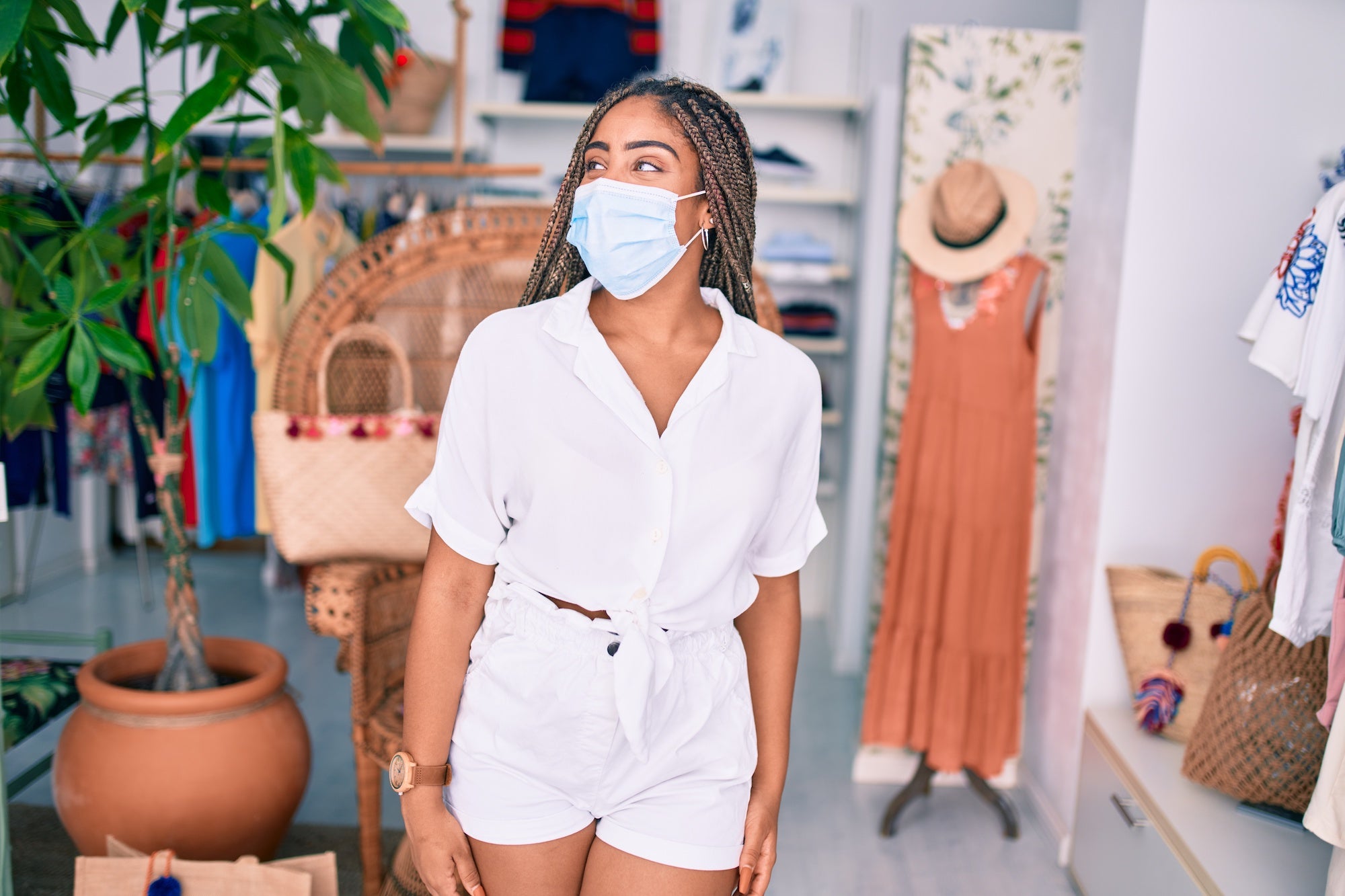
Mask Acne: 6 Surprising Tips to Prevent It From Ruining Your Skin
The other day, a friend asked me if I had a matching mask to go along with their outfit. Not giving it a second thought, I reached into my existing mask collection and searched for something that might fit. The reality? This scene is not so uncommon nowadays. Wearing a mask has become a part of our everyday life, and while this truth has taken us all by surprise, the real shocker is the acne aftermath!
Mask acne, aka “maskne ”, occurs because of excess moisture and friction. It usually affects the skin through expressed irritation, redness, and inflammation.
Here is a snapshot of how it works!
There are tiny, microscopic hair follicles on your face, chest, and back. When you wear something that creates friction and/or pressure on a specific area, it can irritate those hair follicles, leading to widespread inflammation.
The tricky part about face masks is that they also act as insulators that trap all of the exhaled warm air and moisture from your mouth and distribute it to the surrounding skin surfaces. So, anytime you speak, these two elements escape into the mask and are trapped there. This creates a tropical sub-atmosphere similar to a rainforest inside the mask!
Gross? Absolutely! But wait, there's more! This situation can result in rapid bacterial growth, inflamed skin, acne, rosacea, yeast infections, and eczema. If you see signs of any of these, it’s a clue that your skin's natural barriers have become compromised. But, have no fear! It's time to change your skin strategy to include the six best tips for combatting maskne.
1. Reevaluate Your Mask
Masks are not created equal and can create a variety of reactions depending on the skin type.
If your skin seems dry, inflamed, sensitive to the touch, or red after a long day, this is the ultimate sign that you need to reconsider the type of mask you're using. Adverse reactions to face masks are real and if skin changes are happening, you should take note.
The Solution: Consider getting an adjustable, durable, and lightweight mask. The difference will more than likely astonish you!
2. Wash Your Face Religiously
When you were little, you probably heard about the importance of washing your face. The truth is that cleansing your face is still one of the most important things you can do if you want healthy skin.
Each day you wear a mask is another opportunity for bacteria to culminate on or near your face. While that sounds utterly gross, bacteria are looking for places to grow and multiply. Just like you wash your underwear every day (and we all hope you do), you have to give your face the same attention. You don't want oil, dirt, and bacteria, just sitting there waiting to form the next breakout, do you?
The Solution: Switch to a cleanser that can truly penetrate the skin's deep layers while depositing healing nutrients and vitamins back into it. The Radiant Cleansing Nectar is just right for the job! This rinseless cleanser quickly takes away bad bacteria, oil, and leftover makeup while depositing nutrients for all-day rejuvenation. It's the perfect companion for a face in need.
3. Ditch the Disposables (Literally)
From the heavy-duty N95s to the fashion masks you get at the mall, the type of mask you wear makes a big difference. However, one recommendation from dermatologists remains the same: disposables are not for permanent use!
Often disposable masks are a breeding ground for bacteria and germs. They are also not supposed to be worn for long periods because they collect large amounts of bacteria and you can’t wash them. While this may seem discouraging to those of us who have worn the same mask for a week straight, have no fear! You are now armed with knowledge for next time!

Boo, disposables! Also, don't forget to cover your nose in public ;)
The Solution: Try a cotton mask that you can wash. Cloth alternatives are often recommended because they can be reused and tend to collect fewer bacteria between washes. In addition, those with a double layer of fabric can offer more protection while still giving your skin the breathing room it needs.
4. Be Mindful of the Makeup
Going out with friends looks very different right now. While you still want to look your best, wearing a mask can turn a full face of makeup into a smeared disaster.
Bacteria, excess oil, and dead skin are already existing problems during these mask-mandated times. When you add makeup to this equation, you are blocking your pores, potentially clogging them, and setting yourself up for an acne breakout.
The Solution: Consider only applying makeup to the top half of your face to prevent a sticky situation underneath your mask. However, if you still feel like your face is a bit bare, try the Clear Skin Elixir out! It will not only provide you with a protective barrier under your mask but also give your face some much-needed nutrients. Who said you couldn’t multitask?
5. Use A Lightweight Moisturizer
When it comes to caring for your face, you have to handle it with extreme care. The skin underneath the mask is vulnerable, and that means acne is waiting to pounce. Provide your skin with protection and nourishment so that it can stay healthy.
The Solution: An oil-balancing moisturizer, like the Flawless Nourishment Cream, can protect the skin's natural barrier throughout the day. It can also help prevent acne, reduce inflammation, and provide lasting nourishment. Gaining more acne-free days is the goal!
6. Switch to An All-Natural Skincare Routine
While masks may not last forever, their effect on your skin can leave lasting reminders. If you want to ensure that your face can weather the mask storm, use the best natural-based solution for problem skin, the Clear Skin Kit. Specifically formulated with over 40 natural ingredients that combat acne, bacteria, and inflammation, this kit will help your skin achieve optimal health.

It's nice to know that there is a light at the end of the tunnel for your mask-related breakouts! Let natural skincare save the day for a face in need!
Sending you love and light!





